- Home
- Kay Hooper
Blood Sins Page 10
Blood Sins Read online
Page 10
One thing she had to protect.
Ruby turned on her side in bed and cuddled Lexie close.
“It’s all right,” she whispered. “I won’t let anything hurt you. No matter what.”
Tessa frowned. “So . . . Samuel could be precognitive, with a history of visions that came true. Telekinetic, with the ability to move things, maybe even levitate his own body. Telepathic, with the ability to read minds.”
Hollis was nodding. “Any of which could get their attention, convince them to listen to him, believe him. Follow him—even off a cliff. Maybe help keep the men in line by convincing them he’s the alpha, the natural leader chosen by God, that they’re destined to follow him. Especially if he added his own unique twist to the whole control issue.”
Tessa was still struggling with the idea that left her more than a little queasy. “The women. He found a way to give them . . . something better than a drug.”
Grim, Hollis said, “They don’t call it ‘the little death’ for nothing. An orgasm can produce an extraordinary amount of sheer energy. If he’s found a way to psychically trigger that, and then . . .”
“Steal the energy for himself?”
“Why not? As long as he has the control to stop pulling energy before he takes too much, it’s pretty much a renewable energy source. Especially if it affects them like a drug and makes them more than willing to submit to him again and again. It could affect him like a drug. Hell, they could all be addicted to it.”
Tessa set her coffee cup down on the kitchen island and crossed her arms beneath her breasts. “I might be sick,” she muttered.
“Yeah, me too. A kind of sexual domination for the books, that’s for sure.”
“And the men, the husbands? They just allow it?”
“Probably aren’t quite willing to believe what they may suspect. Maybe can’t believe it. From all accounts, he’s not causing women to climax in public, in the church during services, at least not fully. Though Sarah said there were at least a few women who seemed to go right to the brink. But a total orgasm, what you saw in your dream? If what you saw is true, he’s keeping that part of it very private. A little one-on-one with Father, the results of which are known only by a handful of his retinue. Maybe just the guy you saw.”
“DeMarco? Chief Cavenaugh thinks of him as a ghoul.”
“He sounds like one. Especially if he’s carrying Samuel’s drained victims back to their beds in the dead of night. No way to know what his motivation is; maybe he genuinely believes in Samuel. Or maybe he’s just a hired gun.”
Tessa’s frown deepened. “I didn’t get anything from him. And his face sure as hell didn’t give his thoughts or emotions away.”
“If he’s Samuel’s closest . . . adviser, bodyguard, lieutenant, whatever the hell he calls himself, he may be the only one who knows the truth, knows what goes on in private. In public, during services, the other men may well see in the women what a lot of true believers see and feel in church—a kind of rapture. Not quite orgasmic, but close to it. A spiritual experience tying them with even stronger bonds to their father.”
Sawyer woke so abruptly he was already sitting up on the couch when his eyes opened. He looked around his dim office for a moment, his heartbeat thudding in his chest, then swung his feet to the floor and ran his fingers through his hair.
Just a dream.
Yeah, you keep telling yourself that.
Ignoring that sarcastic inner voice, he checked his watch and grimaced when he saw that it was barely five a.m. He had slept four hours, if that. And, tired as he was, he knew it would be useless to try to go back to sleep.
Because he never could. And because the dream nagged at him.
It always did.
But even more now. Especially now. And you know why. You just won’t admit it.
Still ignoring the inner voice, he rose from the leather couch, stretching to ease the kinks and stiffness, and crossed the small room to his desk. He had left the work lamp on, and in the pool of light the folders and maps and other papers covering the blotter looked like chaos.
But Sawyer knew where everything was, and when he sat down, his fingers reached unerringly for a folder underneath two others. It contained summarized reports of half a dozen suspected homicides, all bodies found in the river—but all so far downstream they were well out of his jurisdiction.
Hell, two of them had washed up in a different state.
The victims had been and continued to be unidentified, so were listed as John and Jane Does. Four women, two men.
Sawyer had not requested autopsy photos, but attached to each report was a single photo of each victim as he or she had been found. Stark black-and-white, cold, clinical, ugly.
As were the reports themselves, just clinical facts couched in unemotional medical terms. All the victims had been young, in their twenties or thirties. None had shown signs of disease or conventional antemortem injuries, and no cause of death had been determined.
No conventional antemortem injuries. No bullet wounds, or stab wounds, no strangulation or blunt-force trauma, and no signs of drowning. No evidence of poison, and the toxicology screen on each victim had come back negative for drugs or alcohol.
The only thing these victims had in common was that they should not have died.
According to all the reports, at least. But when Ellen Hodges’s body turned up in his own bailiwick, Sawyer looked more closely at what had, until then, been a nagging but unofficial worry. He had requested and studied all the reports, and then he had personally called each of the M.E.s or coroners involved and asked a few direct questions.
People in the investigative fields, he had found, did not in general have lively imaginations. They dealt in facts, usually ugly facts, and if something fit outside the box of an individual’s knowledge and experience, it was usually given short shrift, overlooked at best and actively ignored at worst. So it hadn’t been easy to get the answers he sought without also tainting the information by asking leading questions.
But patience and tenacity served him well, and he had eventually learned details that were not included in these reports.
Such as the fact that the bodies of every single one of these victims had possessed at least one internal oddity the investigating officers and medical personnel had not been able to explain.
Bruised and even burst organs. Crushed bones.
White eyes.
“Jesus, what’s going on up there,” he muttered, rubbing the nape of his neck with one hand as he sifted through the reports, reading again and again what he had already memorized. And recalling conversations that had, in the end, sounded eerily the same.
“I wish I could help you, Chief. Wish I had an explanation for how that man’s heart was bruised and damaged with no external injury to account for it. I don’t know how it happened. I don’t know how it could have happened. It’s almost as if . . . as if an incredibly powerful hand reached inside his body and—But that’s nonsense, of course.”
Of course. Of course it was.
Nonsense. Impossible.
Sawyer leaned back in his chair until it creaked in protest, his gaze fixed across the room but focused on something much, much farther away. Focused on another brief and seemingly casual conversation on a downtown street corner five years in the past, a conversation that had baffled and unsettled him then and disturbed him deeply now.
“You’ll make a good police chief, Sawyer.”
“What? Reverend Samuel, I have no intention of—”
“I only hope that, when the time comes, you’ll know who your friends are. Who you can trust.”
“Reverend—”
“I know you aren’t a member of my church, but people like us . . . we should stick together. Don’t you agree, Sawyer?”
“I don’t know what you’re talking about, Reverend.”
“No? Well, perhaps not.” He smiled, nodded politely, and continued on his way, leaving Sawyer staring after him.
Sawyer pulled his thoughts from the past with an effort and realized he was looking at the television set on the other side of the room. He didn’t intend to focus on it but found himself thinking that it was still too early to watch what passed for “local” news on the Asheville station—
The lamp on his desk flickered, and then the TV came to life, muted as he had left it the day before and showing an infomercial.
“Shit.” He checked quickly to make sure the blinds were still closed, relaxing only a little when he was certain none of the third-shift officers in the bullpen could see into his office.
Good.
He looked down to see that his watch had stopped, and he swore again, this time half under his breath.
Not good. But not at all unusual.
You should have bought stock in a major watch company years ago. Or just give it up and buy yourself a sundial. . . .
A sundial. And a cell phone that lasted more than a week before dying. And he should have bought stock in whoever sold lightbulbs, because he tended to blow those completely when he was very tired and very worried and not paying attention.
He closed his eyes briefly, making the necessary mental effort to gather in straying thoughts and energies. It wasn’t difficult, after all these years of determined concentration and practice, but it was a control that tended to slip when he was weary or distracted.
And that was not good.
“. . . people like us . . .”
That was really not good.
Tessa was shaking her head in response to Hollis’s theory about physical pleasure being taken for spiritual rapture. “Okay, explain the women. Tell me how a woman—a grown, sexually active woman—could not know she’s having an orgasm. And how any woman could explain that away as a religious experience.” “Some do, I’m told.”
“Hollis.”
“Okay, okay. I’m betting it’s another aspect of Samuel’s abilities. He can’t control their minds psychically, but I’ll bet he can plant the certainty—like a posthypnotic suggestion—that what they’re experiencing is a spiritual rather than a physical rapture. I even bet that those he calls into the inner sanctum most likely wake up the next morning convinced they only had an erotic dream.”
Tessa shivered. “That’s . . . twisted.”
“And then some.”
“But he can’t be drawing all the energy he needs just from the women, can he?”
“Doubtful. Now and then for a fix or in an emergency, yeah, but they can’t be his primary source. Not if he’s expending an unusual amount of energy.”
“Do we know he’s doing that?”
“No. We know he has in the past, but we have no idea how much of his energy he has to expend—in controlling his flock and in order to reach his other goals. Whatever those are.”
“We don’t know a whole hell of a lot,” Tessa observed.
“Yeah, welcome to our world. That’s par for the course.”
Tessa picked up her cup and took a swallow of her cooling coffee, giving herself a moment to think. “So, if we’re assuming he’s using more energy than he possesses—for whatever reason—we also have to assume he has to replenish that energy somehow.”
“Every psychic I know has to. And while rest is the most natural way, it isn’t the quickest; quite a few of us also can draw energy from external sources. Electrical storms and strong magnetic fields, for instance. Don’t storms bother you? They make me feel like one giant exposed nerve.”
“They make me feel edgy,” Tessa acknowledged, and then stopped, frowning. “Wait. When I was reading up on Grace, on the area, one of the things I remember reading is that the weather here from spring to fall is unusually violent. Something about the granite in the mountains, the shape of this valley, and the way weather fronts move through. Lots of storms, especially electrical ones. Is that why Samuel based his church here?”
“We think so. Also why he’s so interested in the Florida property you supposedly own. Last time I checked, Florida held the record in the US for most lightning strikes within a given period. Summer storms can be vicious. Just like here.”
“But almost always spring to fall here. Winter storms are really rare.”
Hollis nodded. “Which means that during the winter months, like now, there’s rarely a handy supercharged electrical or magnetic field available from which to draw or replenish his energy. But he’s using energy, and probably at a high rate. The negative vibes you picked up, possibly even the pain, are probably no more than a discharge: unfocused remnants of energy left over after he’s used his abilities.”
“Which means . . .”
“Which means he has to need something a lot more powerful to recharge, to restore his own energy balance. Assuming there’s anything balanced about him, which I take leave to doubt.”
Tessa ignored the muttered aside. “Then what does he do? You said the women couldn’t be his primary source. For part of the year, neither can the weather. So?”
Reluctant, Hollis said, “The body produces a great deal of energy during orgasm. It also produces an extreme amount of energy during the dying process—especially a terrifying or agonizing traumatic death. Believe me, I know.”
“Are you saying he’s killing in order to feed?”
“I’m saying it’s possible. It could explain those . . . inexplicable deaths. And it’s that possibility, that suspicion, that brought us here.”
“Doesn’t the FBI have to wait to be invited?”
“In a conventional homicide investigation, sure. We’re very careful to respect state and local jurisdictions. But for some crimes, FBI involvement is automatic—and that includes a serial killer who’s crossed state lines in his rampage.”
“But didn’t that part of the official investigation end in Venture? I thought there was no solid proof linking Reverend Samuel with that killer.”
“The evidence was . . . tentative,” Hollis admitted.
“Meaning it was gained through psychic abilities?”
“Let’s just say we have more than one reason to keep a low profile here in Grace.”
“I see. And we have no hard evidence linking the reverend to the bodies pulled out of that river either.”
“Tessa—”
“Do we?”
After a long moment, Hollis said, “No. We don’t. We have no hard evidence against him at all.”
Eight
UP EARLY?” Bailey asked as she walked into the room. “Or up late?”
Bishop looked at her, frowned for an instant, then replied, “I’ll catch a nap later.”
“Up late, then.” She shook her head. “You’ll be no good to us if you don’t get some rest. This thing could go on for weeks, even months.”
“No. It couldn’t. It won’t.”
Rather than take a chair, Bailey perched on the conference table, crossing her ankles and swinging her feet idly. She was, by nature, a very serene woman, not easily rattled and very patient. As the SCU’s strongest guardian, she tended to take a less active role than most of the other agents in ongoing investigations, spending much of her time on the clock sitting at bedsides or otherwise sticking close to someone under threat of attack. And not an attack using conventional weapons.
Looking at her, Bishop thought, as he so often had, that she didn’t wear her toughness on the outside where ordinary eyes could see it. She was unexpectedly fragile-looking, a tall, slender brunette with large dark eyes so calm and deep they were almost hypnotic. Perhaps her serenity came from a thorough understanding of human nature; like most of the guardians in the unit, she was a trained counselor and, in fact, held a doctorate in psychology.
She didn’t look tough.
She was.
Her particular psychic talents hadn’t been something he expected to need, back in the beginning. But it wasn’t long before he realized how valuable a psychic able to shield others could be. It wasn’t long before he saw the need for one.
“Penny,” Bailey offered.
&nb
sp; “For my thoughts?” Bishop shook his head. “Don’t waste your money.”
“So you’re still grappling, then? Still trying to figure out how Samuel is doing it?”
“That isn’t the question that worries me.”
“What his limits are.”
Bishop nodded. “Do you know what the lead in today’s Grace Gazette is going to be? It’s already posted online. The town council met and considered a minute raise in property taxes.” He paused, then added, “The corpse found in the river yesterday barely rated a mention on the back page.”
“Well, with the owner and editor being church members, to say nothing of at least one reporter . . .”
“I honestly wish I believed that’s all it is,” Bishop said. “That Samuel’s influence extends outside the Compound only through his followers. But it’s more than that. The whole town feels wrong, and virtually every one of us has been aware of it and has commented on it. The place is off somehow. Placid. Incurious. Hollis asked me, rather jokingly, if we’d tested the water.”
“Which we did. And found absolutely nothing out of the ordinary.” It was Bailey’s turn to frown. “Whatever it is, however Samuel is doing it, not everybody seems to be affected. Chief Cavenaugh is about as far from incurious as you can get. And there are a few others I encountered during a stroll through the town. I haven’t met Cavenaugh yet, but I can tell you that the others who seemed more . . . alert or anxious all had one thing in common.”
“Which is?”
“Their own kind of energy. Not psychic, unless they’re latents; I wouldn’t necessarily pick up on that. But I could definitely sense shields of one kind or another.”
Brooding, Bishop said, “Nonpsychics build shields all the time. To protect themselves. Mentally, emotionally, even physically. It’s more common than not.”
Bailey nodded. “Especially in small towns, where your business tends to be everybody else’s.”
“Were the shielded ones church members?”
She pursed her lips. “Don’t think so, but I didn’t exactly have a list to go by. Just from appearances . . . no. They didn’t have that scrubbed and placid look about them.”

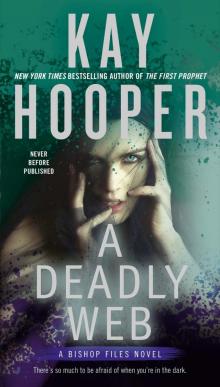 A Deadly Web
A Deadly Web Raven on the Wing
Raven on the Wing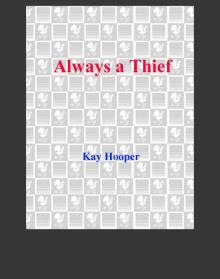 Always a Thief
Always a Thief Star-Crossed Lovers
Star-Crossed Lovers Blood Dreams
Blood Dreams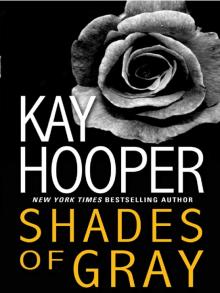 Shades of Gray
Shades of Gray Rebel Waltz
Rebel Waltz Chill of Fear
Chill of Fear Sleeping With Fear
Sleeping With Fear After Caroline
After Caroline Time After Time
Time After Time Haunting Rachel
Haunting Rachel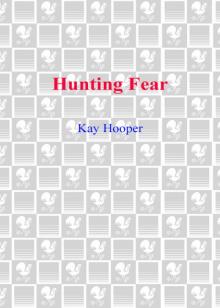 Hunting Fear
Hunting Fear Out of the Shadows
Out of the Shadows Whisper of Evil
Whisper of Evil Blood Sins
Blood Sins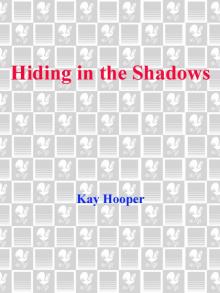 Hiding in the Shadows
Hiding in the Shadows C.J.'s Fate C.J.'s Fate C.J.'s Fate
C.J.'s Fate C.J.'s Fate C.J.'s Fate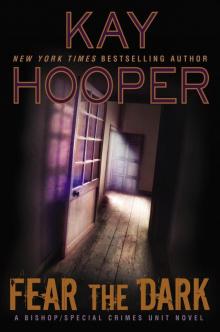 Fear the Dark
Fear the Dark Illegal Possession
Illegal Possession Stealing Shadows
Stealing Shadows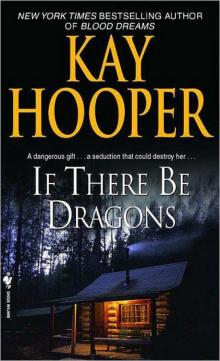 If There Be Dragons
If There Be Dragons Once a Thief
Once a Thief In Serena's Web
In Serena's Web On Wings of Magic on Wings of Magic
On Wings of Magic on Wings of Magic Hostage
Hostage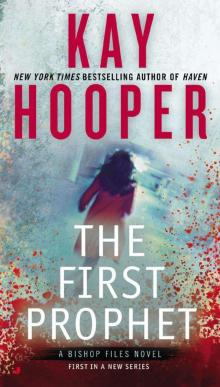 The First Prophet
The First Prophet Through the Looking Glass
Through the Looking Glass Golden Flames
Golden Flames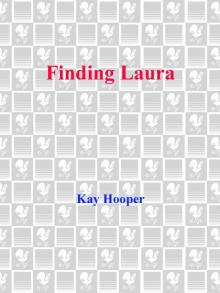 Finding Laura
Finding Laura Haven
Haven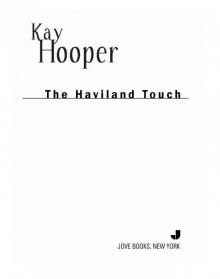 The Haviland Touch
The Haviland Touch The Lady and the Lion
The Lady and the Lion Haunted
Haunted Velvet Ligntning
Velvet Ligntning Blood Ties
Blood Ties Adelaide, the Enchantress
Adelaide, the Enchantress The Matchmaker
The Matchmaker Golden Threads
Golden Threads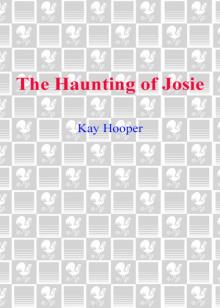 The Haunting of Josie
The Haunting of Josie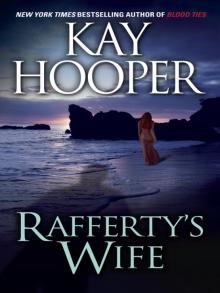 Rafferty's Wife
Rafferty's Wife Amanda
Amanda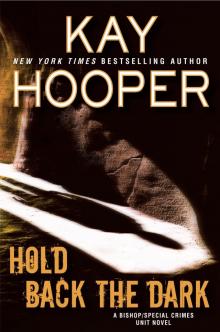 Hold Back the Dark
Hold Back the Dark Sense of Evil
Sense of Evil What Dreams May Come
What Dreams May Come Larger Than Life
Larger Than Life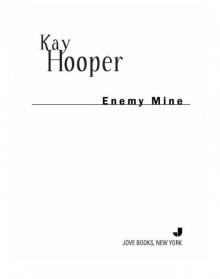 Enemy Mine
Enemy Mine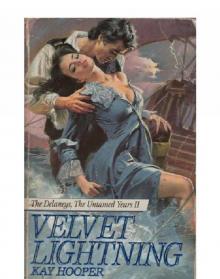 Velvet Lightning
Velvet Lightning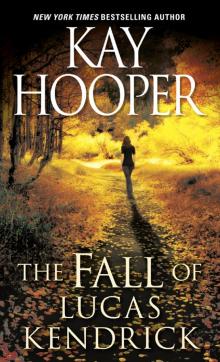 The Fall of Lucas Kendrick
The Fall of Lucas Kendrick Aces High
Aces High Captain's Paradise: A Novel
Captain's Paradise: A Novel The Wizard of Seattle
The Wizard of Seattle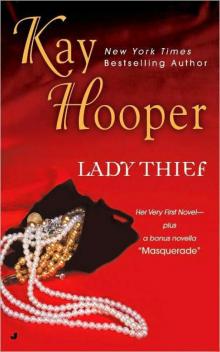 Lady Thief
Lady Thief Summer of the Unicorn
Summer of the Unicorn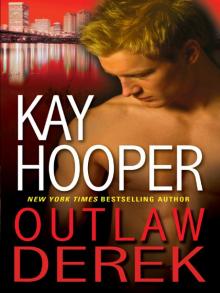 Outlaw Derek
Outlaw Derek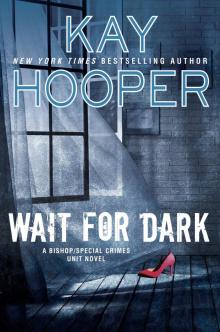 Wait for Dark
Wait for Dark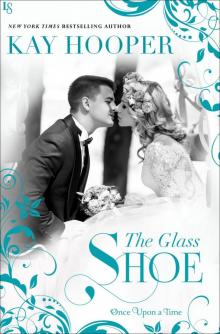 The Glass Shoe
The Glass Shoe It Takes a Thief
It Takes a Thief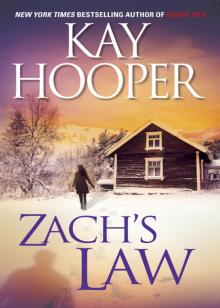 Zach's Law
Zach's Law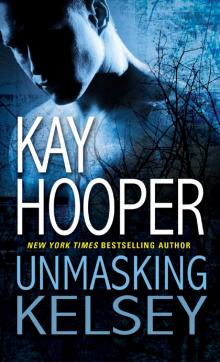 Unmasking Kelsey
Unmasking Kelsey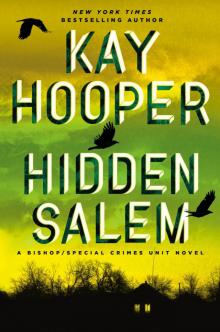 Hidden Salem
Hidden Salem